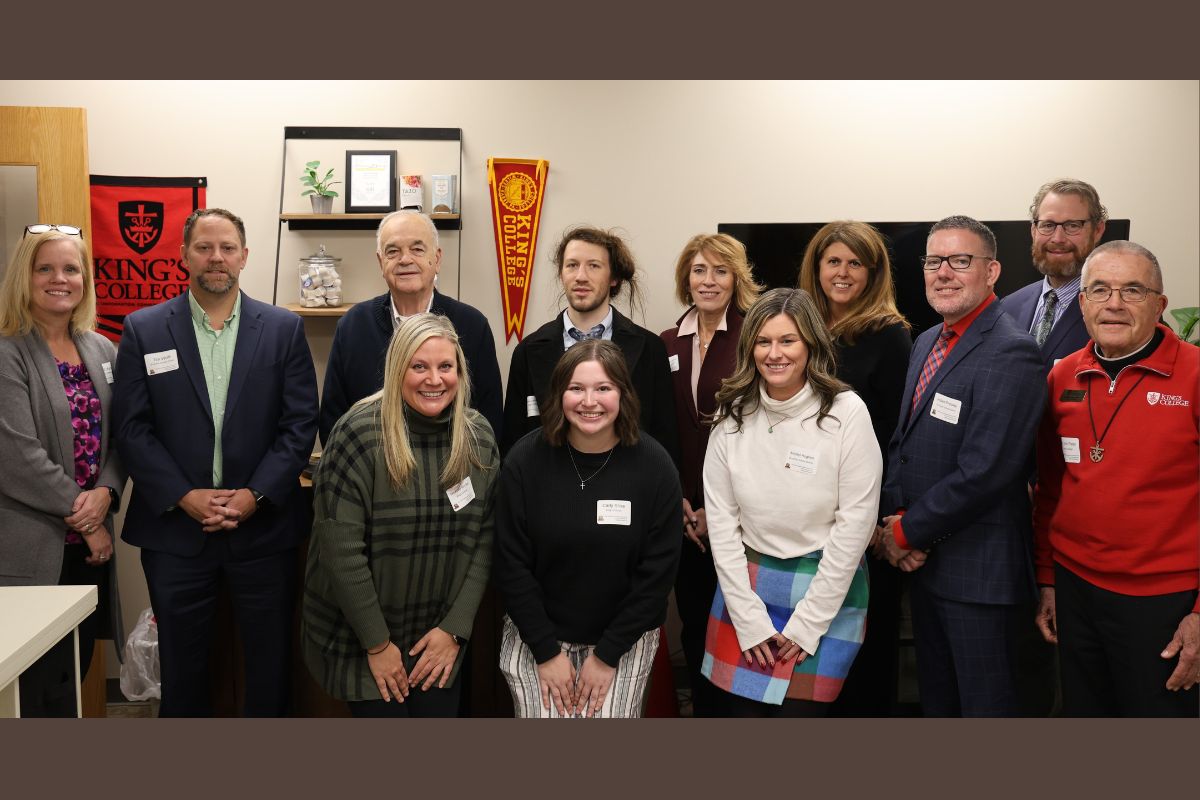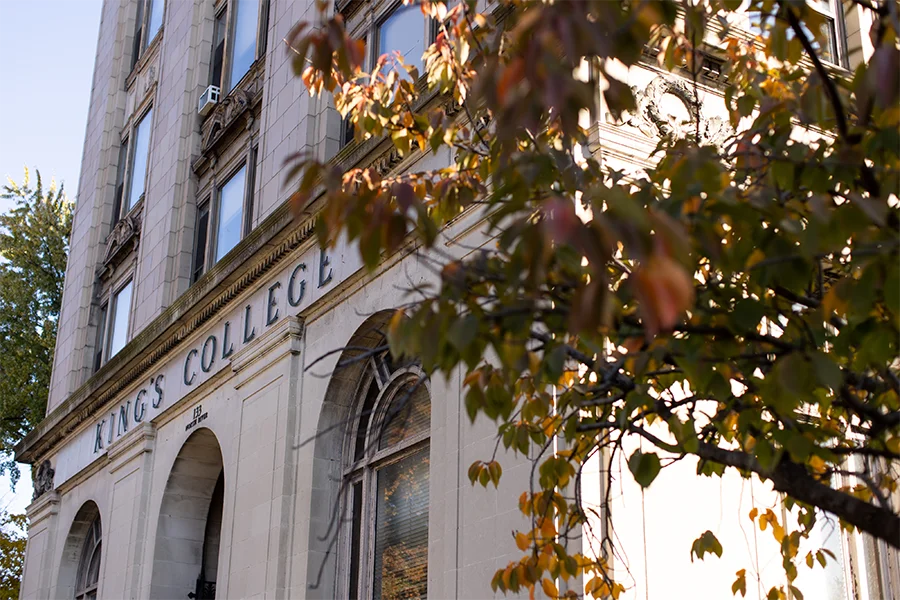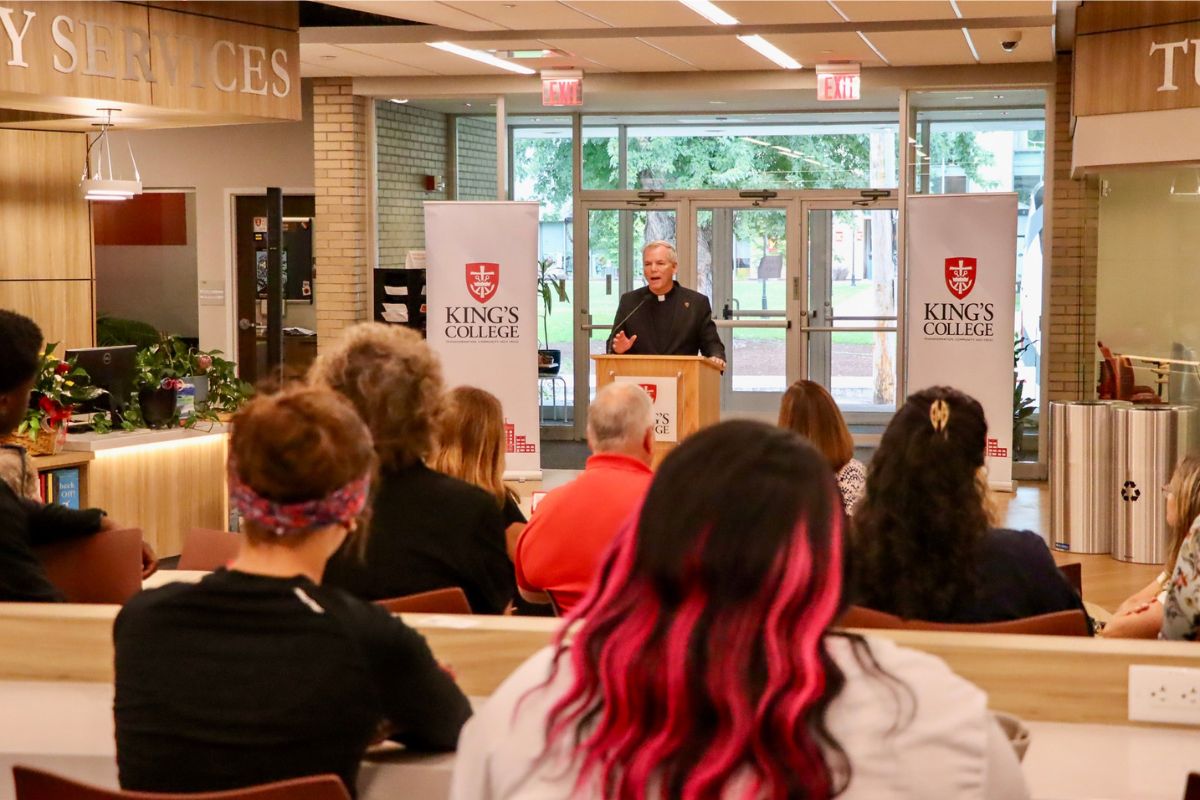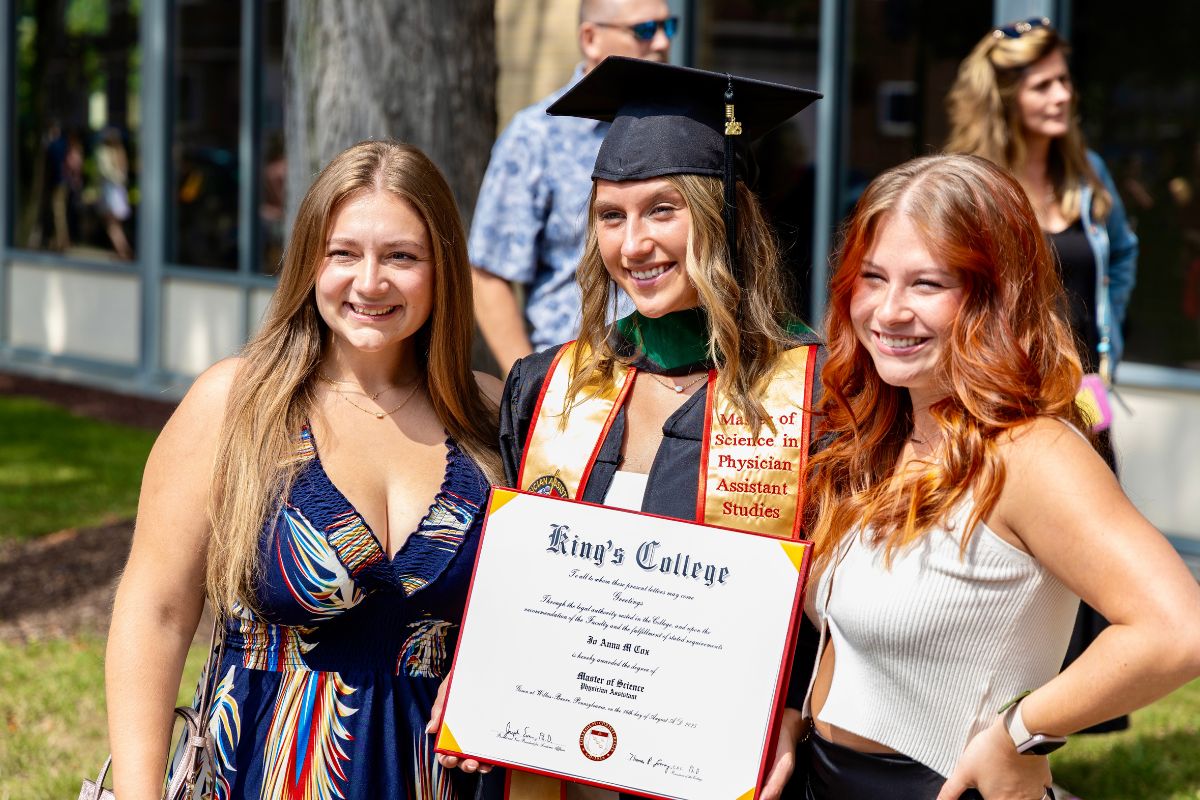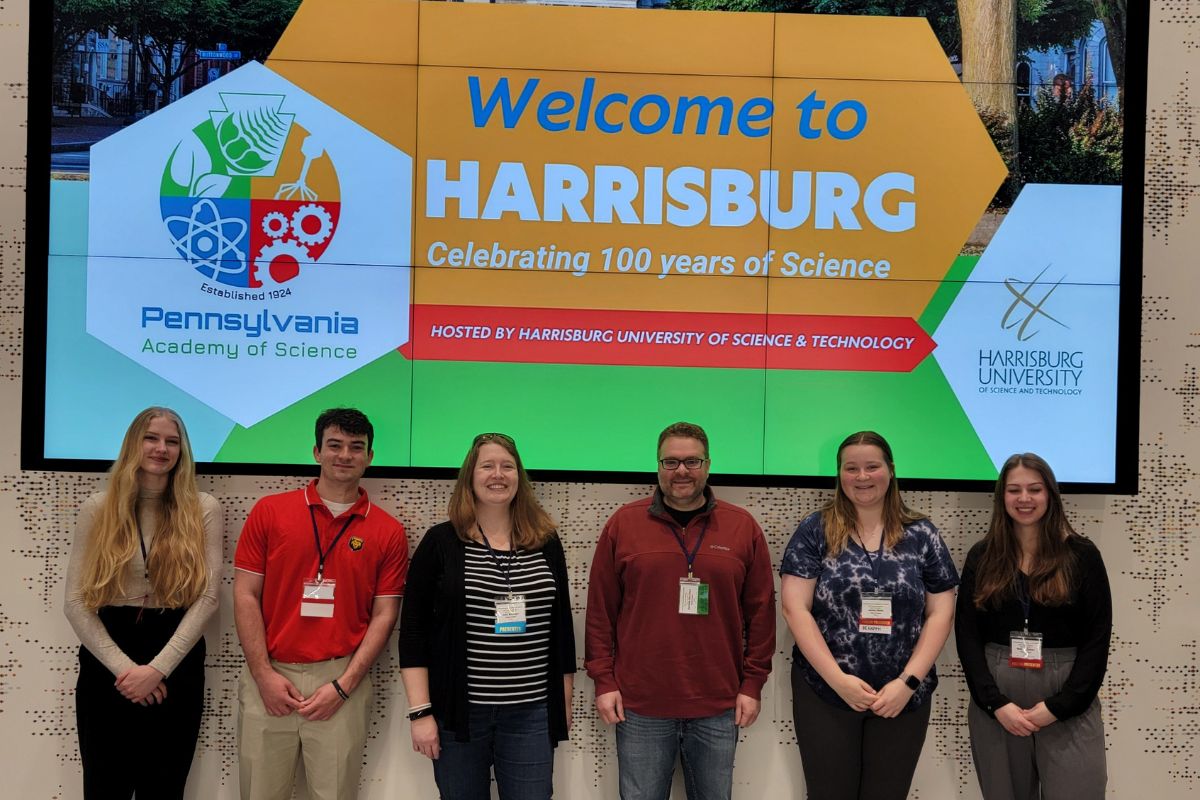
Students studying chemistry, physics, and biology attended the 100th annual Pennsylvania Academy of Sciences Meeting in Harrisburg, Pa., on April 11-13 to present a wide range of research projects conducted with King’s College faculty.
This annual event is as a great opportunity for undergraduate students to present their scientific research with their peers from colleges and universities from all over the state. Altogether, the work of eight faculty members and eight students from King’s College was featured at this year’s event. Notable projects included: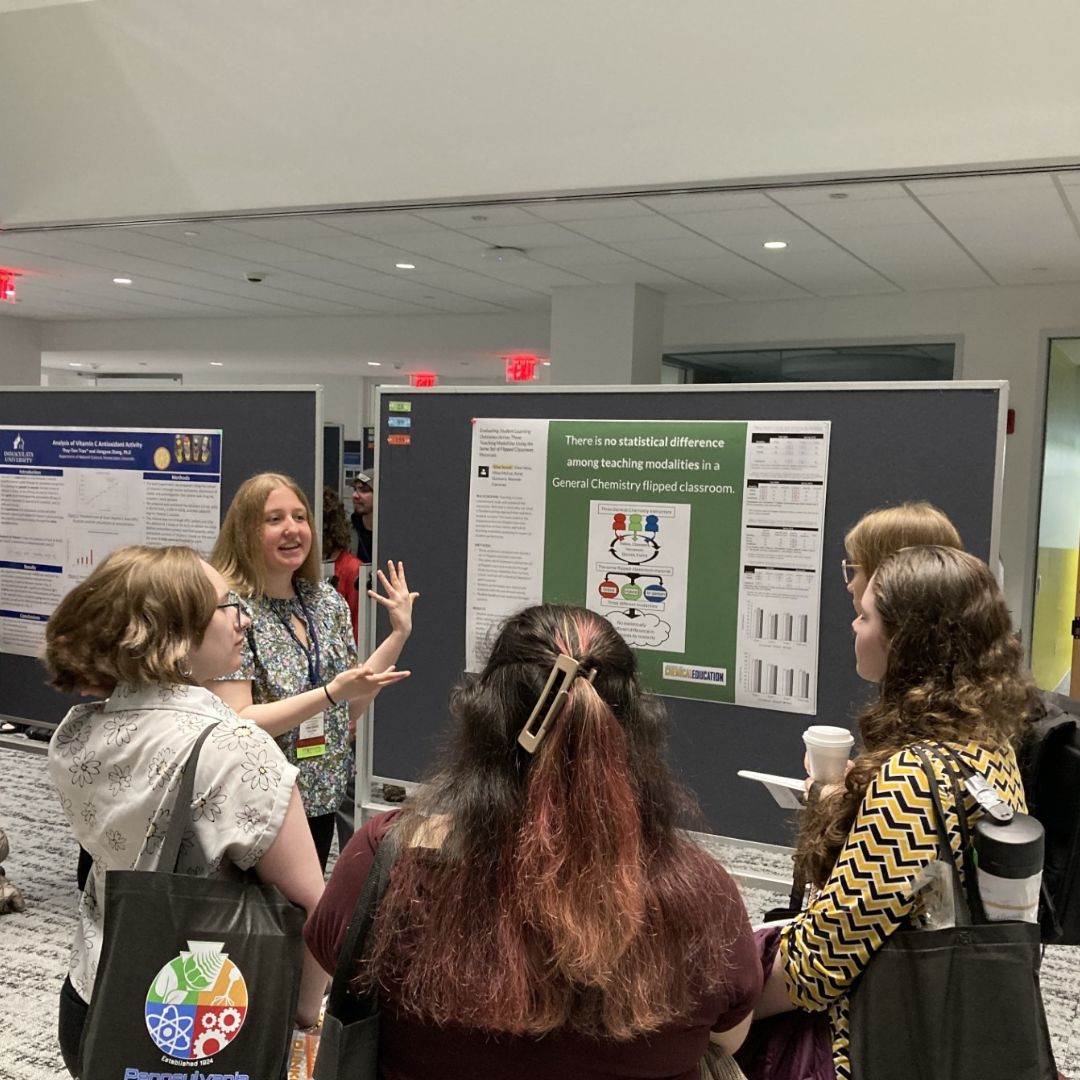
- Dr. Julie Belanger – Unexpected particle formation when adding DMSO or ethanol solutions to biological membranes
- Jordyn Bortz and Dr. Frank Varriale – Jaw dropping mechanics: Preliminary insights from a simplified analysis of shark jaw properties
- Christine Kate DeNucci, Dhara Javia, and Dr. David Glick – Powering small devices using electricity generated from the mud through Geobacter and Shewanella within microbial fuel cells (MFCs), known as mudwatts
- Heather Kemper and Dr. Elise Heiss – Development of a two-part electrochemistry experiment for analytical chemistry lab
- Sean McKeague and Dr. Issac VonRue – Controlling the glass transition temperature of shape memory polymers for biomedical applications
- Michaella Moyer and Dr. Tammy Tintjer – Comparison of isolation techniques for Epichloë endophyte
- Melanie Selner and Dr. Gerardo Giordano – Using Quantum Computers to Study the Effects of Thermal Noise in Computation
- Anne Sizemore, Dr. Elise Heiss, Shannon Corcoran, Jillian Snook, and Dr. Jillian McCue – Evaluating student learning outcomes across three teaching modalities using the same set of flipped classroom materials
- Victoria Zultevicz and Dr. Brian Williams – Synthesis of bridged bicycles - compounds with medicinal applications
The Pennsylvania Academy of Sciences is dedicated to advancing science in the state by supporting research and STEM education. The organization offers professional development, forums for professional dialogue among junior and senior scientists at all academic levels, and assistance for educational initiatives devoted to the development of scientific skills and knowledge.
